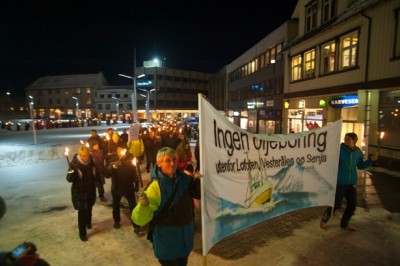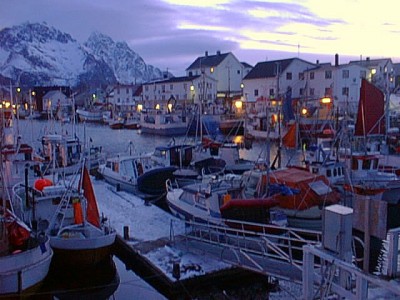The waters off Norway’s stunningly beautiful archipelago of Lofoten won’t be opened up to offshore oil and gas operations for at least another two years, but the respite isn’t much of a victory for environmentalists trying to protect the area. Pressure continues to find more oil and gas, and politicians are already rumbling about new efforts to do just that.

Norway’s left-center government coalition finally hammered out a compromise of sorts over the divisive issue of drilling off Lofoten and Vesterålen late last week that has pitted oil interests and those keen on new job creation against the fishing industry and environmentalists. Government leaders artfully changed the wording of plans for environmental impact statements that opponents feared would lead to more oil and gas exploration. They agreed not to grant any leases for exploration rights in the area either. That means the waters off Lofoten and Vesterålen will remain closed to any drilling operations at least through the end of the current parliamentary period in 2013.
The drilling opponents’ dreaded environmental impact statement known as a konsekvensutredning (literally a study of the consequences of drilling) is being replaced with comprehensive kunnskapsinnhenting (literally, “knowledge gathering”). Two of the government’s three coalition parties, the Socialist Left (SV) and the Center Party (Sp), bitterly opposed the initial form of the impact statement and claimed they won their battle to halt it. “Lofoten is the place where the environment and the future won over oil drilling,” said Snorre Valen of SV.

Others, even within the government, cautioned that SV’s supposed victory (granted by the government’s dominant Labour Party after SV and Sp lost their fights to speed up carbon capture at the Mongstad power plant and block overhead power lines in Hardanger) was largely symbolic. “As I see it, SV won a new name, but Labour won the compromise,” a mayor for Labour on Lofoten told newspaper Dagens Næringsliv (DN).
At best, argued some, SV and Sp have only won a delay in eventual oil and gas operations off Lofoten. The oil industry and Labour, keen to create new jobs, will still be able to move forward with an environmental impact statement, albeit under a new name. SV and Sp also had to swallow the opening of new oil and gas exploration areas in the Barents Sea, another highly sensitive area environmentally. A 35-kilometer-wide belt along the entire coast, from Nordland in the south to the Russian border in the far north, will be closed to drilling until 2013 and seasonal restrictions will apply for another 50 kilometers out to sea from March to September. But the coastal belt shrunk from 50-kilometers along Troms and Finnmark counties, meaning drilling can occur closer to land.
Meanwhile, opposition politicians for the Conservative Party (Høyre) and the Progress Party (Fremskrittspartiet, Frp) are waiting in the wings to move forward with oil and gas exploration off Lofoten and Vesterålen if they win government power in the 2013 election. The Conservatives, seizing on the support for oil exploration within the arch-rival Labour Party itself, were already pointing to what they claim is a majority in Parliament in favour of drilling off Lofoten.
“There are limits to how long we can live with a situation where a clear majority in the parliament must bow to the minority,” declared Conservative leader Erna Solberg to news bureau NTB, referring to the small minority parties like SV, Sp and Venstre and the Christian Democrats, which also oppose drilling. All told, though, they only make up around 15 percent of the vote, or less, according to recent public opinion polls.
“Our clear stand is that the seas off Lofoten, Vesterålen and Senja shall be studied with the aim of petroleum operations,” Solberg said. “This is an important issue for us.”
Only a pure Høyre-Frp coalition government with a majority in parliament would guarantee for such offshore activity, though. The smaller parties together with Labour (internally split on the issue) could continue to block, or at least delay, it again. “Right now, we’ve won a few years’ delay,” Reidar Nielsen of the fishing industry group Norges Fiskarlag told newspaper Aftenposten. “We’re not in principle against oil operations, but in Lofoten and Vesterålen they are not compatible with fishing. It’s irresponsible to open up for oil operations here.” He realizes, though, that the cod he seeks to protect from oil drilling and possible spills remain under threat.
Views and News from Norway/Nina Berglund
Join our Reader Response forum if you’d like to comment on this story.

